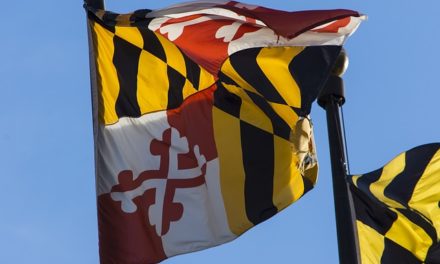By Len Lazarick
Len@MarylandReporter.com
Greg Cantori takes over as president of Maryland Nonprofits next Monday at a time when nonprofit organizations and their clients – like many businesses in Maryland small and large – have been battered by the economy.
“Not only did they have to weather this great recession, they have had to take up the slack” from the impact of the economy’s increasing demand for social services, Cantori said in an interview. “I think it’s been such an incredibly challenging time in the last five years.”
Cantori was named last month to head the association that includes 1,400 nonprofit organizations and 300 associate members. He moves over from a brief four-month stint as the executive director of the Downtown Sailing Center, but he is best known for his 12 years managing the operations of the Marion I. & Henry J. Knott Foundation and its philanthropy to Catholic and educational institutions.
There are 28,000 organizations in Maryland designated as 501(c)(3) by the Internal Revenue Service, meaning that contributions to these “public charities” can be tax deductible. But most of those organizations are groups like Little League and other social and sports organizations.
State and local agencies fund nonprofits
State and local agencies make heavy use of nonprofits to deliver social, health, housing and educational services. For instance, most of the $876 million that the state spends to take care of people with developmental disabilities is funneled through nonprofit groups.
The Governor’s Grants Office and the Maryland Association of Counties recently cooperated on a survey that found county governments gave $78 million in grants to more than 1,100 nonprofit agencies, including $32 million to more than 200 in Baltimore City.
Overall, nonprofits in Maryland, which include most hospitals and private universities, employ about 260,000 people, 11% of total employment.
Cantori said he wants to serve the “one-man rowboat to the cruise-ship liner.”
Among the services that Maryland Nonprofits provides are dozens of training seminars and webinars in fundraising and management, group purchasing and health insurance, and other support.
“The No. 1 issue that nonprofits have is credibility,” Cantori said, and for that the organization offers its “Standards of Excellence” program that encompasses ethics, accountability and training.
Nonprofits need more collaboration
Especially in these days of funding stress, he said nonprofits need to collaborate more, especially as foundations are encouraging mergers of nonprofits “to come up with some synergies.”
Whether with government grants or foundation funding, Cantori said nonprofit organizations are more efficient ways to spend money, they’re “more community-based,” and because of that, they provide “accountability that may get lost from a government entity.” Because of their community focus and control, they can also attract the volunteer labor that is estimated to be worth $20.73 an hour.
Cantori has a 1984 bachelor’s degree in geography (cartography) from the University of Maryland Baltimore County. He began his career as a senior cartographer with the Defense Mapping Agency, now known as the National Geospatial Intelligence Agency, where he helped support U.S. forces during Desert Storm and Desert Shield. Among the tasks his unit did was burn CDs for targeting cruise missiles.
He left because “I didn’t like the fact that I was killing people,” and became executive director of the Light Street Housing Corp. for seven years after serving on the board there. That nonprofit rehabbed houses to help low-income residents in neighborhoods that were slowly gentrifying, and aided the homeless and people with substance abuse problems.
While at the Knott Foundation, he got his executive MBA from Loyola University of Maryland, and also teaches graduate courses in nonprofit marketing and fundraising at Notre Dame University of Maryland.
Cantori said he is planning to hold a listening tour as he starts his new job, and expects to write blog postings of “things that I’ve heard.”
“I’m always looking at innovative ways to raise money,” Cantori said.
“I feel like I’m going to be a funder without the funding,” he said. “I think right now is the time to really shine” for nonprofits.





I am newly transplanted in Oregon and glad to see you in this position Mr. Cantori! Best wishes and all luck to you!